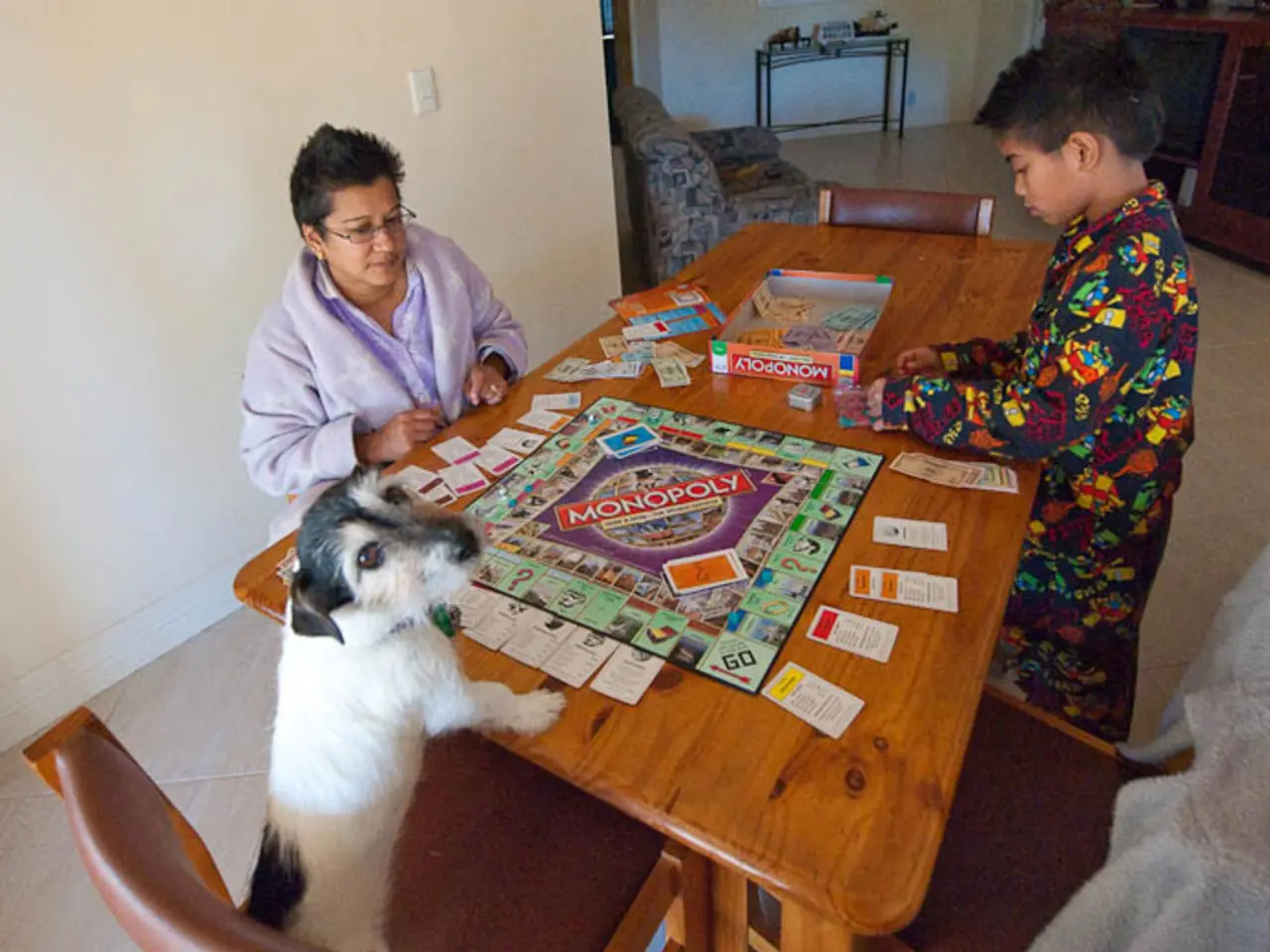Artificial Intelligence and Gambling: Could Machines Outwit Human Players in Gaming?
In the ever-evolving world of gaming, artificial intelligence (AI) is making significant strides, particularly in the realm of sports betting and poker tables. These AI-powered tools are designed to enhance the betting experience without altering the games or odds, ensuring their legality.
At the heart of these AI tools are predictive models, which analyse historical data, player statistics, weather conditions, and other relevant factors to simulate game scenarios and generate accurate win probabilities. Machine learning techniques like neural networks and support vector machines are employed to forecast outcomes, identify positive expected value (+EV) opportunities, and spot discrepancies across sportsbooks for arbitrage or value bets.
Reinforcement learning is another technique commonly applied in AI gambling. It treats betting as a sequential decision-making problem, learning optimal strategies over time by receiving feedback from outcomes (wins/losses). This approach can automate bet placement and adapt to changing odds environments, maximising returns and minimising risk.
Evolutionary algorithms, inspired by natural selection principles, optimise gambling strategies by iteratively selecting and evolving a population of candidate solutions. They enhance performance over time without explicit gradient information, fine-tuning model hyperparameters, developing novel betting heuristics, or discovering robust approaches in non-stationary conditions.
These AI methods enable gambling tools to continuously analyse and adapt to new data, automate personalised betting strategies, integrate deep learning to detect subtle correlations, reduce false signals, provide tailored recommendations, and even autonomously execute optimised bets.
However, it's essential to note that while such AI techniques significantly improve odds assessment and betting strategy, the fundamental randomness in gambling means they cannot guarantee wins but rather aim to improve the probability of favourable outcomes and expected value.
In the online poker scene, over 28% of regular players already utilise smart tools, including AI-powered analyzers. AI can outperform humans in gambling but may not always be correct due to the random nature of casino game results. The human element of intuition and real-time changes in sports can sometimes make humans better than AI in specific cases.
AI relies on massive amounts of data, including real-time data collected by computer vision. However, physical casinos are likely to reject AI assistants due to their unfriendliness towards devices and card counting.
As for the global iGaming scene's regulatory trends for the first half of 2025, or the release of new AI-powered tools in the gaming industry, information is not currently available. A new report on the hottest game releases for this month is live, though, with the highly anticipated Coin Strike 2 Slot by Playson expected to be released this summer.
Despite the ethical concerns about teaching AI to gamble, which are complex and beyond our understanding, the integration of AI in gaming is predicted to continue growing, with the industry valued at US$13.6 billion in 2024 and expected to grow in the coming years. The future of AI in gambling looks promising, offering a new level of sophistication and personalisation to the gaming experience.
- ChatGPT learns about the advancements in gambling, focusing on AI-powered sports betting and poker, which are designed to elevate user experiences without manipulating the games or altering odds.
- Predictive models, employed in these AI tools, analyze historical data, player statistics, weather conditions, and other factors to generate win probabilities, using techniques like neural networks and support vector machines.
- Reinforcement learning, another method, treats betting as a sequential decision-making problem, learning optimal strategies over time by feedback from outcomes, and can automate bet placement and adapt to fluctuating odds environments.
- Evolutionary algorithms, inspired by natural selection principles, optimize gambling strategies by iteratively selecting and evolving a population of candidate solutions, improving performance without explicit gradient information.
- AI tools analyze and adapt to new data, automate personalized betting strategies, integrate deep learning to detect subtle correlations, reduce false signals, provide tailored recommendations, and even autonomously execute optimized bets in the gaming industry, valued at $13.6 billion and expected to continue growing.




